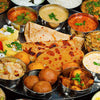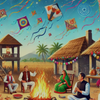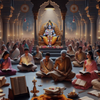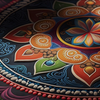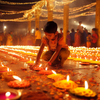What deities are worshipped during Diwali by region? Why?
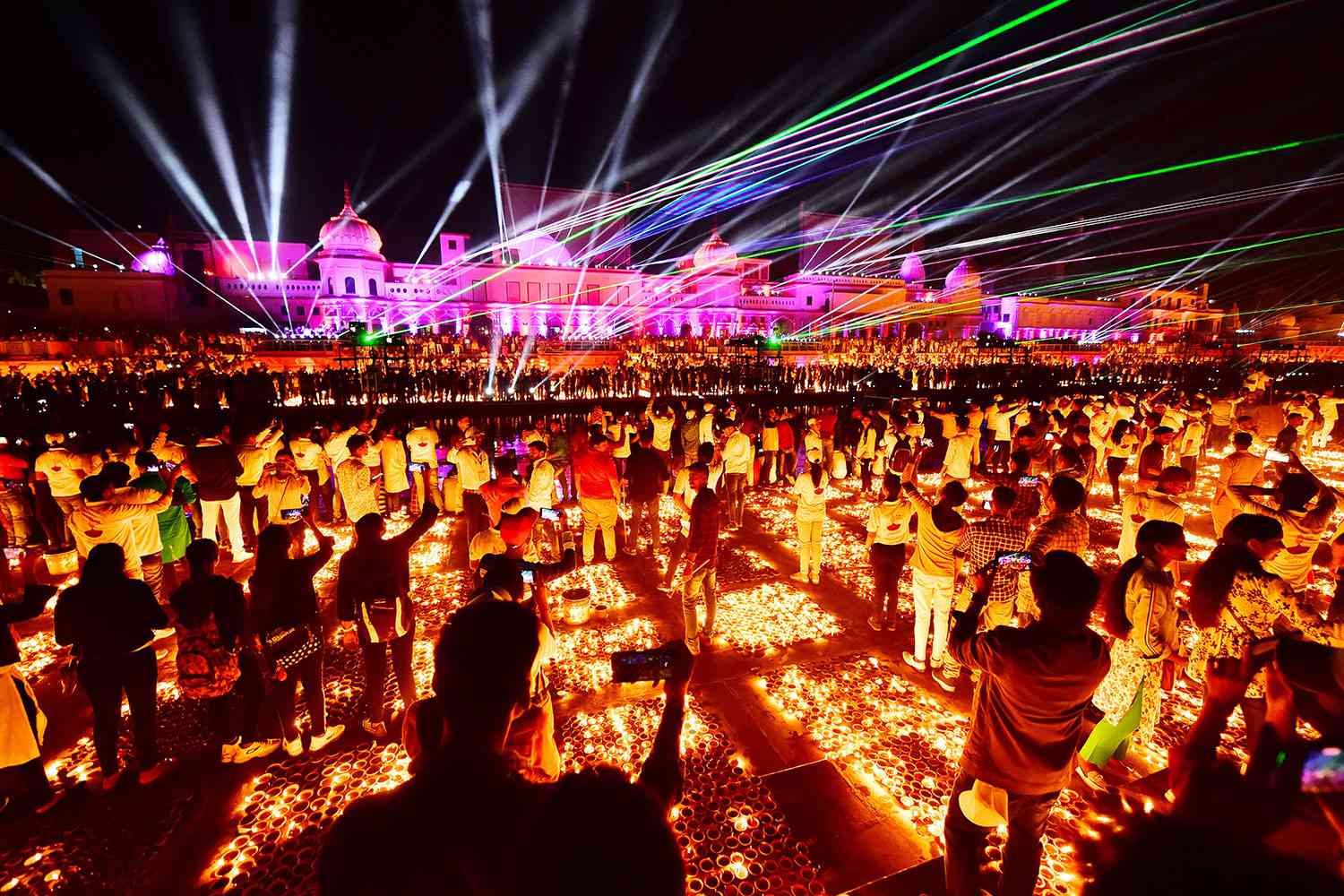
The Divine Devotion of the Goddess Lakshmi
The Festival of Lights, or Diwali, is one of the most popular Hindu and Indian celebrations. It honours the victory of light over darkness and brings families and communities together for worship, celebration, and devotion. Although Diwali being a national holiday, the gods worshipped during this time vary by region, and each gives the celebrations a unique character. In this blog post, we'll look at the primary gods that are worshipped on Diwali in various parts of India and talk about their special significance.
Most of India centres Diwali rituals around Lakshmi, the Hindu goddess of wealth, prosperity, and abundance. on the third day of Diwali She is worshipped and prayers are presented, which is also known as Lakshmi Puja, in the hopes of receiving her blessings for a prosperous new year. The primary celebration in North India, Lakshmi Puja, entails decorating shrines, setting lights, and cleaning dwellings in preparation for the goddess.
The primary focus of Lakshmi devotion on Diwali is its significance of prosperity and abundance. Devotees believe possessing Lakshmi in their homes will bring prosperity and happiness in the upcoming year. They carefully construct altars adorned with lovely flowers, flaming diyas (oil lamps), and offerings of candies, fruits, and cash, all of which are made as real expressions of their love and appreciation to her. In addition to calling for the advantages of financial prosperity, the event emphasises a broader desire for harmony, riches, and well-being.

Differences in Diwali Worship by Region
India's cultural richness is reflected in the variety of local customs and deities worshiped during Diwali celebrations, including Lakshmi Puja.
North India: Paying homage to Lord Vishnu and Lord Rama


In North India, Diwali is a celebration of Lord Rama's return home to Ayodhya following the victory over the demon king Ravana, in addition to being a time for honouring Lakshmi. The epic Ramayana states that this return symbolises the victory of good over evil. In the North, families construct shrines in honour of Lord Vishnu, of whom Rama is an avatar, and they ignite fireworks in honour of his triumph and return. Lakshmana, Sita, and Rama adorn statues in homes and temples, and devotees tell legends of their courageous acts
The spiritual and cultural principles associated with Rama's character are reflected in the North Indian beliefs around Rama throughout Diwali. As a result of their commitment to righteousness, people who celebrate Diwali do so with the understanding that, in the end, good will win over evil, both internally and externally.
Worship of Lord Ganesha and Lakshmi in Western India

The Hindu goddess Lakshmi is worshipped with Lord Ganesha, the god of knowledge and obstacle removal, in the western states of Gujarat and Maharashtra. In this case, the message is that wisdom and wealth go hand in hand, and that wealth cannot solve all of life's challenges by itself. Households set up altars in honour of Ganesha and Lakshmi on Diwali, burning lights and offering flowers, fruits, and candies.
Striking a balance between worldly success, spiritual wellness, and common sense is considered essential in the Western areas. Worshippers of both deities offer prayers to Ganesha for guidance in overcoming hardship and to Lakshmi for material prosperity. Belief in these gods is a reflection of a holistic way of life where prosperity and spiritual growth go hand in hand.
East India: Kali Ma's Sacred Worship

In Bengal along with other East Indian regions, where devotees of Kali Ma come together Diwali coincides with Kali Puja. Kali is admired for her fierce and protective qualities and for being the remover of evil energy. As with Diwali, believers solicit Kali Puja's blessings in order to be strengthened and protected, as it symbolises the triumph of good over evil.
During Kali Puja, followers build altars with bright red flowers and incense and offer sweets and other items applied in her rituals. Bengalis strongly believe that Kali may grant them resilience and drive out negativity.
Worshipping Kali during Diwali signifies a deeper level of devotion, with an emphasis on protection and driving off both outward and interior darkness.
South India: Honouring Krishna for His Victory Over Narakasura
Diwali, referred to as Naraka Chaturdashi, is celebrated in a completely unique manner in South India. It honours the demon Narakasura's death at the hands of Lord Krishna, representing the victory of good over evil. This day starts out with an oil bath in the morning, symbolising purification. After then, candles are lit and an altar is made for Krishna.
The tale of Krishna overcoming Narakasura represents the cleansing of the mind, body, and spirit. On Diwali, South Indians honour the bravery and valour of Krishna and consider the idea that courage, faith, and purity may triumph over all challenges. The rites place a great focus on the purity of purifying oneself and letting rid of negativity both physically and spiritually.
Bhai Dooj: The Sibling Bond Throughout Central India

A celebration called Bhai Dooj is often celebrated alongside Diwali. Usually in Central India. The day is devoted to the worship to the God of Death Yamraj & his sister Yamuna. Brothers & sisters who worship together are considered to be granted good health, happiness & protection from evil forces.
Alters are usually put up by the sisters. They pray & ask for there brothers safety & protection.Brothers show there love by promising to Protect there sisters throughout there life. reinforcing the sacred bond they share.This regional tradition presents further proof of the importance Hindu society places on family bonds and sibling relationships.
The Common Theme of Diwali: Light Over Darkness

Irrespective of how regional differences may appear, the overriding message of Diwali throughout all of India is the victory of good over evil and light over darkness. Whether they celebrate Lakshmi, Rama, Kali, or Krishna, the altars are sacred landmarks that showcase a broad spectrum of Hindu religious beliefs.People of all ages gather together to honour the universal themes of purity, protection, and prosperity as well as strengthen their faith and find faith in heavenly guidance through rituals, offerings, and the burning of oil lamps.
As Diwali approaches, every part of India celebrates its own deities, creating an intricate web of traditions and beliefs that speak to the nation's rich spiritual and cultural heritage. Whether you are more drawn to the calm of Lakshmi, the courage of Krishna, or the protective might of Kali, Diwali offers a moment to reflect on the sacred and embrace the light within and around us.

